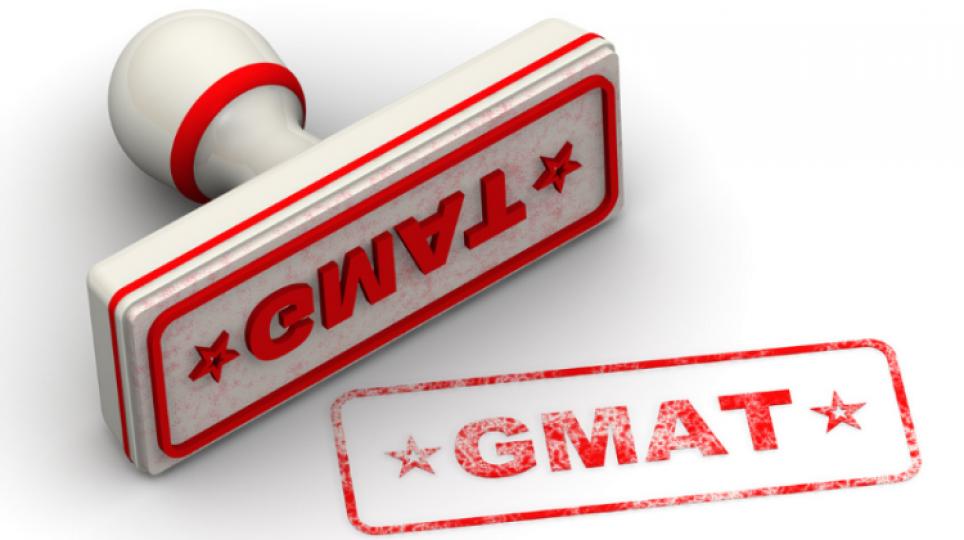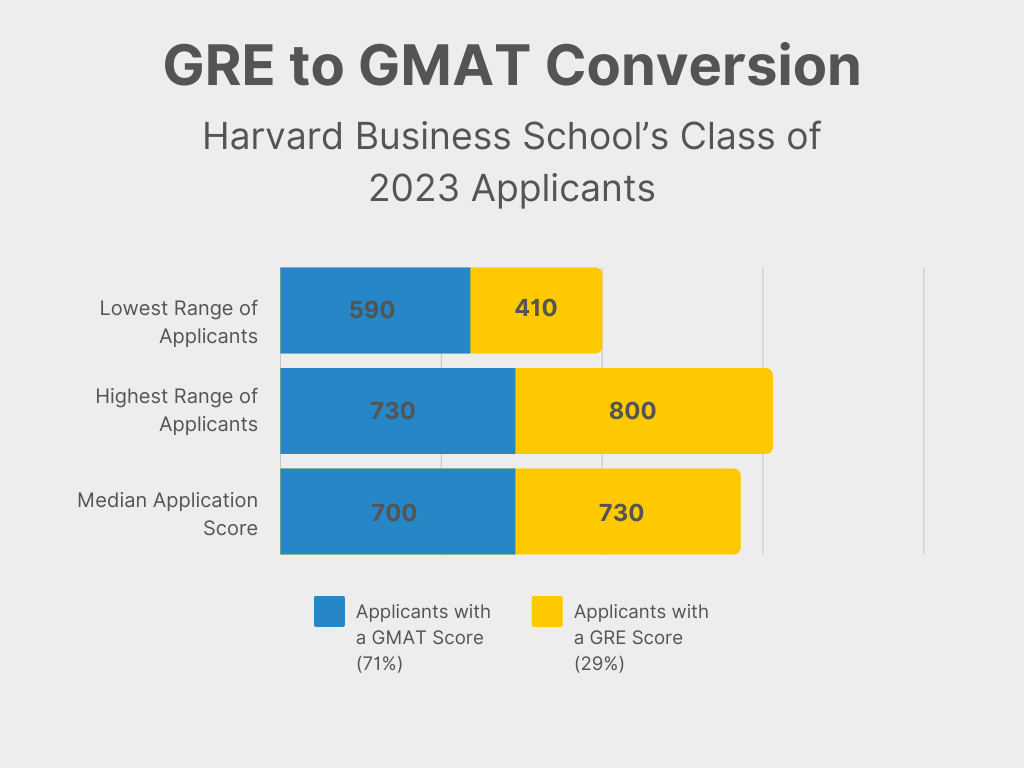
The GMAT, or Graduate Management Admission Test, is a standardized exam for those interested in applying to graduate school – specifically business graduate school. The GRE is also a common (and arguably more popular) grad school exam that is more of a fit for general graduate programs.
The benefit of the GMAT is that it’s tailored to those who want to focus on business school, so grad business programs typically accept and prefer to see GMAT scores over GRE scores.
There are four sections within the GMAT, and each section has its own scoring range, which we’ve outlined below. Each section also focuses on a different assessment area, with the number of questions increasing with each section.
GMAT Score Chart
How Is The GMAT Scored?
The big question every GMAT test taker wants answered is, “how does the scoring process for the GMAT work?” Like the GRE, you will receive an individual score from each section of the exam. However, unlike the GRE, you will also receive a combined total score ranging from 200 to 800. Roughly 67% of test takers score somewhere smack-dab in the middle, between 400 and 600.
Please note it is important to answer as many questions throughout the exam as possible. “There is a penalty for not completing each section of the exam. If you do not finish in the allotted time, your scores will be calculated based upon the number of questions answered. Your score will decrease significantly with each unanswered question.”
Another thing to note about the GMAT is that it gets progressively more difficult based on how well you are performing. In short, the better you’re doing, the harder the questions will get.
Your results will show up on your Official GMAT Score Report, and you can interpret your exam results in many ways. All five scores are reported on a “fixed scale”, which means it isn’t curved or affected in any way by how others do on the exam. This is much like the SAT or ACT and opposite of how the GRE is scored.
When you take the test, you will designate certain business graduate programs that you want your results to be mailed to. Your Official GMAT Score Report is what will be mailed to them.
What Is A Good GMAT Score?
Kaplan Test Prep outlines the following score ranges:
| Top % of the Population | Total Score | Quantitative Subscore | Verbal Subscore | Integrated Reasoning | Essay | |
| Best GMAT Scores | 10% | 710-800 | 51+ | 40+ | 8 | 6 |
| Competitive GMAT Scores | 25% | 650-700 | 48-50 | 35-39 | 7 | 5.5 |
| Good enough GMAT scores | 50% | 550-640 | 38-47 | 28-34 | 5-6 | 4.5-5 |
| Below Average GMAT scores | – | Below 550 | 37 or lower | 27 or lower | 4 or lower | 4 or lower |
Depending on the competitiveness of the program you’re applying to, students generally have a varying score level they are shooting for. Prestigious schools like Harvard Business School likely have higher expectations for GMAT scores than local state colleges as higher GMAT scores are associated with a greater likelihood of success and increased chance of graduation. Both can provide great educational opportunities and a graduate business degree. Their application processes may be a little different.
That being said, the GMAT isn’t the only consideration in a business school application. Don’t put all of your eggs in one basket with your GMAT score. You should also work to showcase your work experience, previous education, internships or notable career accomplishments, or professional projects that will help you stand out from the crowd.
Converting GRE to GMAT Scores
If you have already taken the GRE and now want to apply to a school that prefers the GMAT, you’re in luck! GRE scores can be converted to GMAT for colleges that prefer them.
As mentioned previously, if you’re hard set on a business school, a GMAT is probably the safer bet. But, if you aren’t sure, the GRE is more widely accepted across all graduate programs, and therefore the more commonly taken exam.
As noted above, GRE scores can be easily converted to equivalent GMAT scores, using ETS’ GRE Comparison Tool for Business Schools. Disclaimer: This resource does not claim to be 100% accurate. It is only designed to give a rough approximation.
As the site states, “predicted GMAT scores based on an applicant’s GRE scores may not be perfectly equivalent to an applicant’s actual performance on the GMAT exam due to the measurement error inherent in both tests. The predicted score range is approximately +/- 50 points for the total GMAT score and +/- 6 points on the Verbal and Quantitative scores.”
Here is an example from TTP showing how Harvard University accepts both the GMAT and GRE and how their 2023 applications are broken down.
- 71% of the applications included GMAT scores
- Score range of 590 to 730
- Median GMAT score of 730
- 29% of applicants included GRE scores
- GRE verbal score range of 147 to 170
- GRE quant score range of 146 to 170
- Median GRE scores of 163 in verbal and 164 in quant

Demographics and GMAT Scoring
With all the information above, there is one more item to factor in. Another factor to consider is your demographic profile. Business schools are increasingly dedicated to promoting diversity and are thus actively seeking candidates from all walks of life, including underrepresented groups. We mention this because this variable can also affect how well a score is ranked in comparison with peers from the same group.
As pointed out by David White of Menlo Coaching, depending on the program being applied to, “Applicants from over-represented groups may need to score up to 30 (or more) points higher than the school’s overall average to reach the average for their group. It’s the opposite for under-represented groups.”
Indeed, while some top schools saw their GMAT averages go up, Stanford University made headlines when its GMAT average dropped by five points. As noted by Poets & Quants, observers felt the “school purposely sought to bring its 737 average lower to send a message to applicants. Kirsten Moss, assistant dean of admissions and financial aid, believed its super high average of 737, achieved in 2016 and 2017, was actually hurting the school by discouraging highly talented applicants from applying to the [Graduate School of Business].”
Stay up to date on college news, advice, updates, financial aid, and more.
